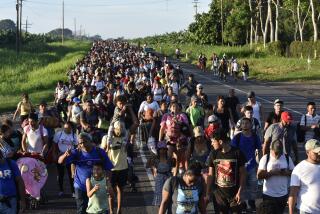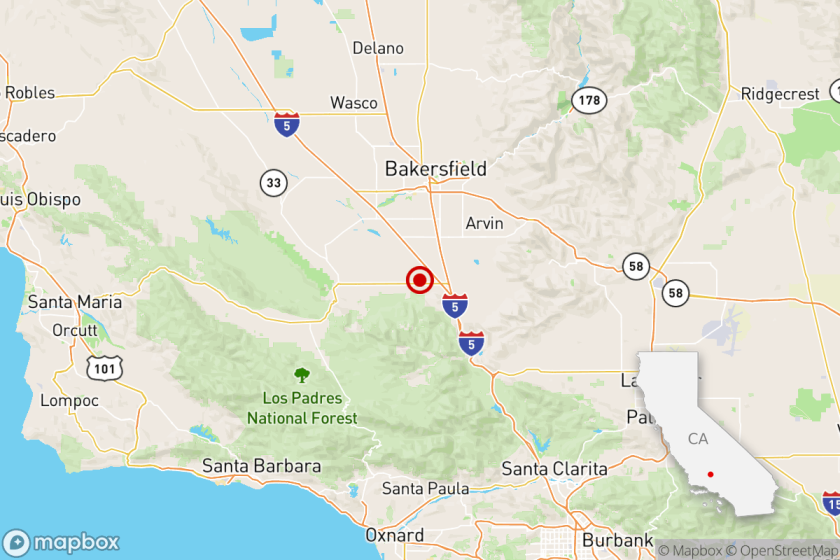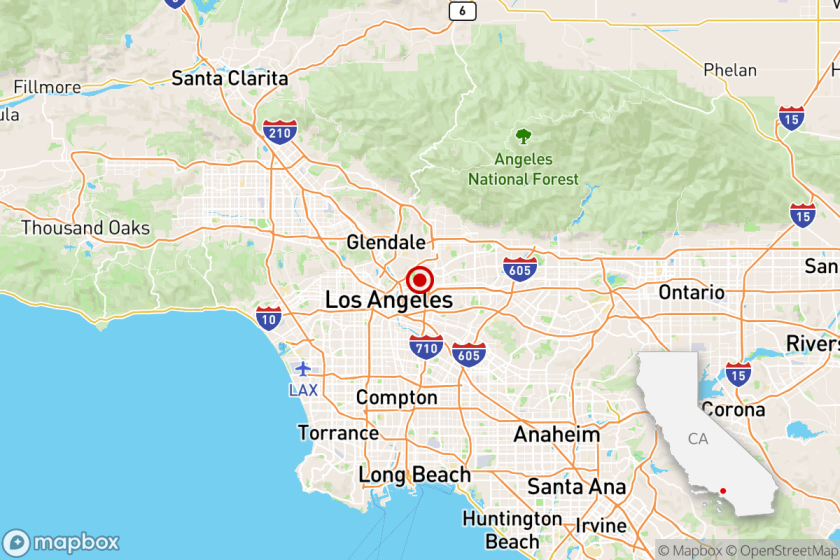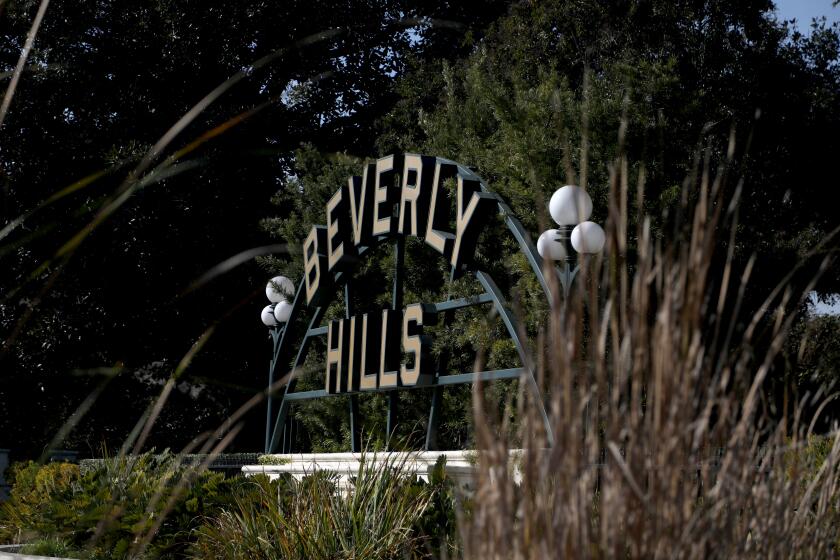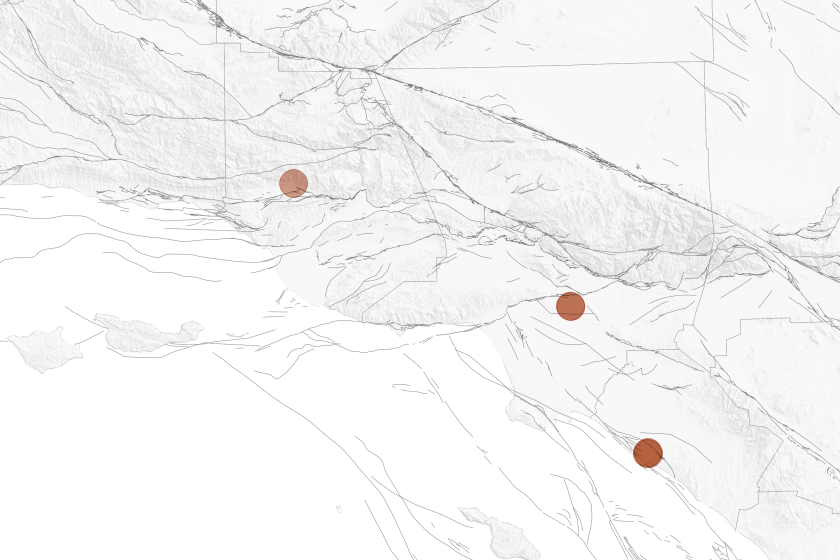BAY AREA QUAKE : Congress Sees Need to Provide $2.5 Billion in Emergency Aid
Congress moved swiftly Thursday to put together a massive package of emergency aid for earthquake-stricken Northern California, and lawmakers predicted that the assistance will exceed $2.5 billion.
Calling the Bay Area quake a “terrible disaster,” House Speaker Thomas S. Foley (D-Wash.) said congressional leaders will ask the House to approve the funding next week.
“I think we’re looking at somewhere around $2.5 billion minimum,” Foley said. He added that the amount might go higher as the scope of the damage caused by Tuesday’s earthquake becomes clearer.
Foley said the relief funds will have to increase the federal deficit if they cannot be siphoned away from other programs.
Even so, he predicted strong bipartisan support in both the House and Senate for such a move, which would require a waiver of the Gramm-Rudman deficit reduction limits for fiscal year 1990.
“To put it bluntly, if the deficit has to go up, then it has to go up,” Foley said. “If we need a waiver of Gramm-Rudman, then that will have to be done.”
Congress, responding to Hurricane Hugo’s destructive swing across the Caribbean and the Carolinas last month, recently appropriated $1.1 billion in additional general disaster relief funds. Of that amount, only $275 million is available for California because the hurricane-struck areas received most of the money.
Several members of California’s congressional delegation, appearing with Foley at a news conference, expressed confidence that Congress will act quickly on several legislative measures already drafted or being planned to replenish the depleted disaster funds.
“There is no question that an emergency like this will need a very significant and immediate bipartisan reaction by members of both houses,” said Rep. Jerry Lewis (R-Redlands).
Rep. Vic Fazio (D-Sacramento) said he will introduce an amendment in the House Appropriations Committee on Monday to raise money for the Federal Emergency Management Agency (FEMA) and several other federal agencies that are providing disaster relief.
Fazio said he will not know the exact amount of the request until Monday morning, when the Office of Management and Budget, FEMA and other federal and state agencies have promised to furnish a more accurate estimate of damage caused by the quake.
Fazio said he anticipates that FEMA will need between $600 million and $1 billion in additional funds for California disaster assistance. The Small Business Administration probably will need $1 billion, he said, and the Transportation Department at least another $800 million to repair the San Francisco-Oakland Bay Bridge, the Nimitz Freeway and other roads and bridges damaged by the quake.
Fazio said he expects the Appropriations Committee to speed through its review of the proposal and send the measure to the House floor on Tuesday, with Senate consideration likely next week.
The funding is to be provided in a continuing resolution, which is a legislative mechanism that permits federal agencies to operate pending the approval of their regular appropriations.
Although Fazio said the continuing resolution will be the primary vehicle for disaster relief, several other measures were also being drafted to provide emergency assistance to Northern California.
In the Senate, Steve Symms (R-Ida.) planned to introduce legislation to lift the $100-million cap on federal funds available to individual states for emergency highway repairs.
A spokesman for Symms, the ranking Republican on the Senate Environment and Public Works subcommittee on transportation and infrastructure, said the legislation will be introduced “as soon as we get word from California on what’s needed.”
The chairman of the House Public Works and Transportation Committee, Rep. Glenn M. Anderson (D-San Pedro), said legislation will also be needed to waive restrictions barring the use of federal funds to repair toll bridges, including the partly collapsed Bay Bridge.
“We have a rule that says you can’t use federal money on a toll bridge, but we’re already working on legislation to waive that in this case,” he said.
Anderson said at least $1 billion will be needed for highway and bridge repairs after the quake. Fazio said he expects the federal government to assume “100% of the cost” of repairing interstate highways.
Although most legislators agreed with Fazio that Congress must act with “speed and bipartisan spirit” to raise adequate relief funds, the amount that will be required is certain to force agonizing debates in both houses over where the money will come from.
“We are talking to all the subcommittee people to see where we can squeeze the best without killing other projects in these very difficult budget times,” Lewis said.
Although legislators face a tough choice between either raising the federal deficit or making more cuts in already pared-back programs, Foley said that issue is secondary to the “obligation we have to meet our responsibilities for disaster relief.”
Meanwhile, U.S. military forces continued to provide assistance to the quake-stricken region.
By Thursday, Gov. George Deukmejian had called up 1,173 California National Guardsmen for the recovery operations. The troops are engaged in medical evacuation, damage assessment from the air and ground and engineering support.
Guard medical units have set up field stations and hospitals at Travis, McClellan and Mather Air Force bases.
Equipped with four C-130 transport jets and 12 helicopters, the National Guard is also hauling emergency workers and equipment to the Bay Area.
Times staff writer Melissa Healy contributed to this report.
More to Read
Sign up for Essential California
The most important California stories and recommendations in your inbox every morning.
You may occasionally receive promotional content from the Los Angeles Times.

